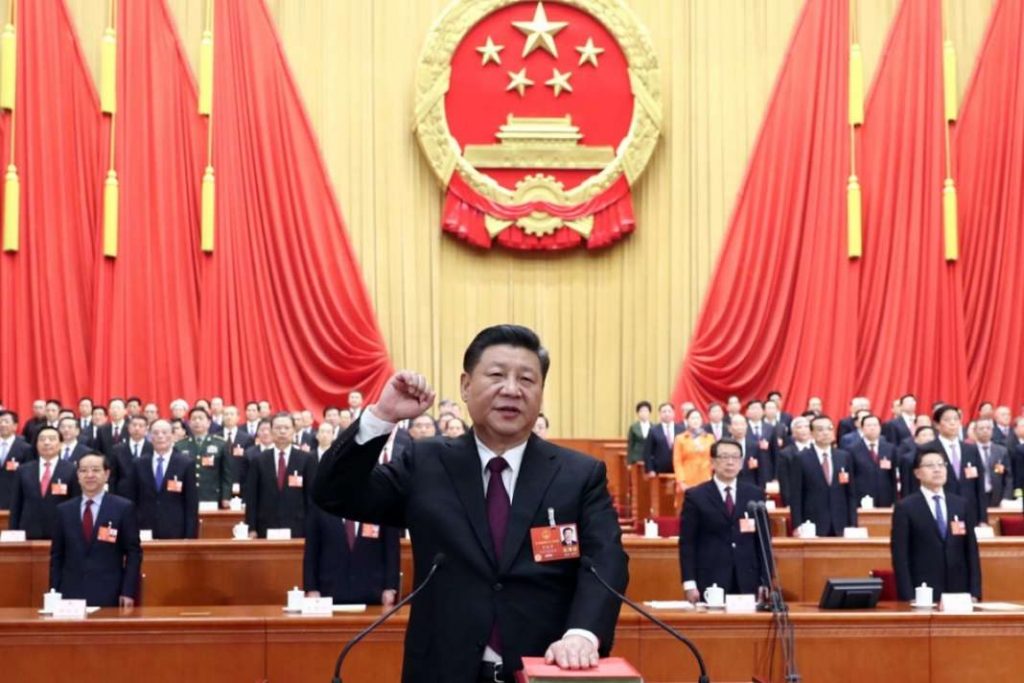Howard Green argues that ‘socialism with Chinese characteristics’ is necessary within the world reliant on socioeconomic interdependence
It was the 25th of February this year that China achieved its goal of eradicating rural poverty. This was met by the scepticism of much of the media in the West, which casted doubt on the definitions of eradication and poverty set by the state. Although this longstanding and well-documented aim had been one of the top priorities of Xi Jinping when first taking the presidency of the PRC, it didn’t stop BBC News from ending the article with “Wide income inequalities also continue to exist in the country” without a source.
Any achievement of the PRC will be willingly deflated at the hands of the Western media. Those sceptical of its achievements will cast doubt on the socialist ambition of the nation itself. Too often is the scepticism highlighted by the West and even ‘socialists’ who remain exceedingly critical of the process than of the application of ‘socialism with Chinese characteristics’.
‘Socialism with Chinese characteristics’ has long been mocked as the CPC’s attempt at justifying the moves Deng Xiaoping had made in moving the country into a more global, market-oriented society. But this is not the case. If we were to apply and examine a socialist nation under the same pretence, for example ‘socialism with Cuban characteristics’, we can observe that Cuba’s blockade by the US has contributed both to the country’s current situation and to its application of socialism.
‘Socialism with Chinese characteristics’ is therefore not just a justification for market economics, but the recognition of the economic, social and cultural relativity that obviously exists in the world, but more importantly, between socialist nations.
Of course, socialist nations shouldn’t stray away from the application of socialism and its goal of communism, however, ‘socialism with Chinese characteristics’ and much of the theory enveloped within modern Chinese governance is more substantial in quantity and quality than that of Western capitalist governments. Are the whimsical politics of Boris Johnson and Joe Biden really guided by any form of modern literature?
Modern development in China does not require a realignment of the socialist cause. Instead, it shows a fascinating similarity with the thought of controversial structural-Marxist Louis Althusser.
Althusser argued that there was an epistemological break in Marx’s work. Simply put, Althusser believed that Marx’s body of work was not the purely coherent whole that has typically been suggested. Instead, the early works – like the Paris Manuscripts – and subsequently the later works – like Capital – were two distinctly different sets of the same theory, with the later work pivotal in the amass of knowledge and theoretical development within Marxism.
To apply this to China is not to apply it to its socialism, but instead to its realpolitik. China’s existence is not characterised in the same bipolar world that the USSR once inhabited. China exists instead under the hegemonic power of the United States. Although, the United States perpetuates the idea of a bipolar world between itself and China in order to justify its erratic behaviour towards socialism. China’s rational behaviour towards the US in its diplomacy and economic protocol (with the ideological conflict between socialist and capitalist states characterised as emotive) is the true epistemological change between the multi-faceted existence of socialist and capitalist nation-states.
This rationality is developed from China’s observation that we live in a world reliant on socioeconomic interdependence. The US and much of the west are reliant on Chinese commodities. This reliance is the reason why so little of the unproven anti-Chinese literature is not acted upon by the US or other nation-states, beyond a few words and a possible sanction. The achievements of the rational and productive force of China turns the core of what was briefly the global capitalist earth into one with a socialist inner core.
Howard Green, is a member of the YCL’s East of England branch



